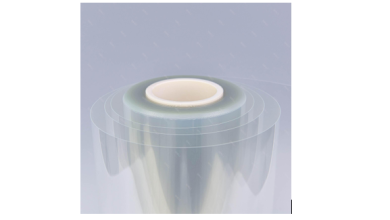The Benefits of Residential Treatment for Lasting Sobriety

Residential facilities are highly structured and supportive environments that aim to help individuals recover from substance abuse. The goal of residential facilities is to treat addiction comprehensively by equipping an individual with the necessary tools and support to maintain their sobriety long after discharge.
What Is Residential Treatment?
Residential treatment, otherwise known as inpatient treatment, involves a patient staying in a treatment facility for a certain period. This approach provides 24/7 care in a safe and sober environment. Residential treatment programs in Los Angeles are designed to address addiction comprehensively, offering tailored solutions for recovery.
Residential substance abuse treatment provides a structured environment that allows patients to work on their recovery without outside distractions. It is most helpful for those with severe addictions or co-occurring disorders.
Benefits of Residential Treatment
Residential treatment facilities are so much more than just a place for initial detoxification. The treatment addresses the very causes of the addiction and equips the patient with skills for long-term recovery. Some of the key benefits that one can derive from residential treatment facilities include:
1.) Safe and Sober Environment
The residential treatment center offers a controlled environment away from triggers and temptations, which is important at an early stage in recovery where vulnerability to relapse can occur.
2.) Comprehensive Assessment and Individualized Treatment Plans
When entering a residential program, patients undergo an extensive assessment process to develop an individual treatment plan specific to their needs.
3.) Medical Detox and Support
Most inpatient programs have a medical detoxification program so that the patient goes through withdrawal safely and with treatment by medical professionals to support them and manage symptoms.
4.) Access to Evidence-Based Treatments
Different evidence-based therapies involved in residential treatment include CBT, group therapy, and family therapy. Programs like behavioral therapy are particularly effective, addressing both substance use disorders and co-occurring mental health issues.
5.) Intensive and Structured Care
Residential treatment provides a structured daily schedule to minimize downtime and encourage patients to participate in therapy sessions, skill-building workshops, and support groups.
6.) Peer Support and Interconnectedness
In a residential setting, clients identify with others who have problems similar to their own. Peer support promotes a sense of community and diminishes feelings of isolation.
7.) Life Skills and Healthy Habits
Residential programs provide essential life skills for stress management, communication, and healthy coping mechanisms, all of which are so crucial to long-term sobriety after treatment.
Major Components of a Residential Treatment Program
Residential facilities have many varied services to assist in treating the complexity of recovery from addiction. Basic components may include:
- Medical Detox: Detox done under the supervision of a professional and in a safe manner by managing withdrawal symptoms.
- Individual Therapy: One-on-one sessions with a therapist to identify personal challenges and develop coping strategies.
- Group Therapy: Facilitated group sessions that encourage shared values and mutual support.
- Family Therapy: Engaging family members to rebuild their relationships and making the home environment supportive.
- Educational Workshops: Sessions on topics like the science of addiction, relapse prevention, and resilience-building.
- Recreation: Opportunity to enjoy hobbies and physical activities for overall well-being.
Addressing Co-Occurring Mental Health Issues
A significant proportion of addicted persons have co-occurring mental disorders, such as anxiety, depression, or post-traumatic stress disorder. Los Angeles drug rehab programs often incorporate dual-diagnosis treatments, addressing both conditions in the same session. This holistic approach heightens the chances of long-lasting recovery.
Support Beyond Treatment
Residential treatment programs emphasize aftercare planning, such as linking patients with outpatient services, support groups, and local resources. Ongoing care is essential in maintaining recovery and preventing relapse.
These include detoxification from drugs and alcohol, traditional inpatient, mental health disorder treatments, partial hospitalization programs, intensive outpatient programs, and aftercare treatments, among others, for supportive services in treating drugs.
Addressing a Drug or Alcohol Addiction Early in Inpatient Treatment Programs
Early identification and intervention in the case of a drug or alcohol problem will significantly enhance recovery prospects. Residential treatment offers an intensive environment that may be necessary for those who need to remove themselves from a harmful environment. A patient is committed to a structured program with the needed support to put their lives back in order and overcome addiction.
Residential Treatment Versus Outpatient Treatment
While outpatient treatment allows flexibility, it may not provide the level of support needed for severe addiction. Residential treatment provides a structured and immersive environment, ideal for individuals who:
- Need medical detoxification
- Have experienced multiple relapses
- Struggle with co-occurring mental health issues
- Lack a stable or supportive home environment
Residential programs provide intense care that leads to better outcomes in long-term recovery.
Insurance and Accessibility
Many health insurance providers cover residential inpatient treatment for substance abuse disorders. Case managers working directly with the treatment center can help patients with individual insurance policies and payment options. Non-profit organizations and local resources also provide financial assistance to ensure that treatment is accessible to all who need it.
How to Choose a Residential Treatment Program
The right selection of the program is a guarantee of success. Considerations may include:
- Accreditation and certification
- Availability of evidence-based treatments
- Qualification of staff and patient-to-staff ratio
- Program length and flexibility
- Support for family involvement
Visiting the facility and talking with the current patients can give a good insight into the quality of the program.
Building a Foundation for Lasting Sobriety
Residential treatment for substance abuse offers so much more than handling acute addiction. With the program, individuals can:
- Build a good support network
- Acquire skills to maintain sobriety
- Address past traumas and unresolved issues
- Cultivate a healthy and fulfilling lifestyle
From Drug and Alcohol Detox to Discharge: Residential Drug Treatment Options have Many Benefits
Residential addiction treatment for substance abuse, whether in a hospital setting or non-hospital setting, is the foundation of addiction recovery. Inpatient rehab provides the level of intensive treatment and comprehensive residential care necessary for long-term sobriety.
From medical detox to outpatient care, these programs equip individuals with the tools they need to rebuild their lives in a safe environment, despite their past issues. If you or a loved one struggles with substance abuse, take the time to consider residential treatment. It is your first step toward a different life that is healthier and free of addiction.





